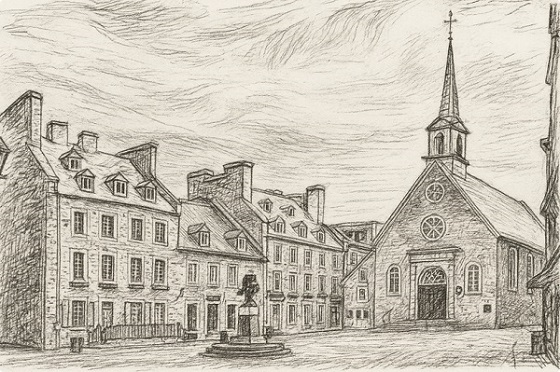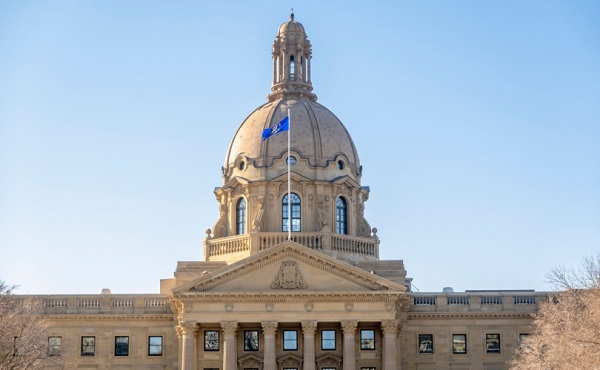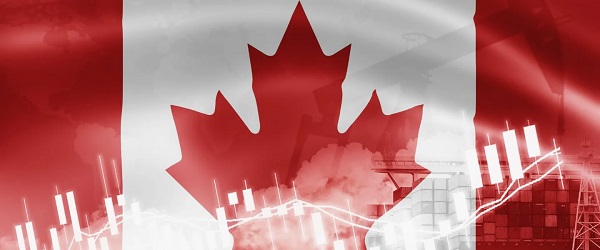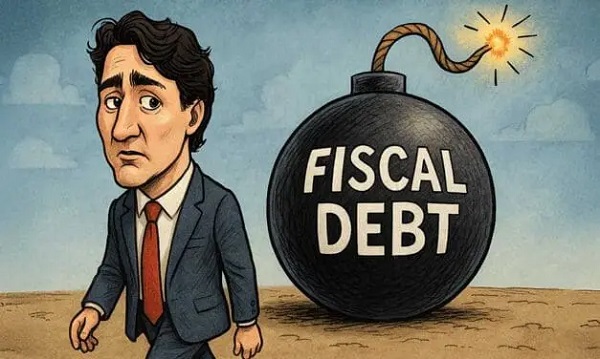2025 Federal Election
Bureau Exclusive: Chinese Election Interference Network Tied to Senate Breach Investigation

As Canada’s election unfolds, fresh questions emerge over whether foreign interference has reached Parliament’s inner chambers.
A Canadian Parliamentarian assessed by national security officials to be part of a Toronto-based Chinese consulate election interference network was the subject of a high-profile foreign interference investigation into an alleged breach of Canada’s Senate, The Bureau has confirmed through multiple intelligence sources.
Sources said the investigation examined allegations that the Parliamentarian enabled a close associate—described as a female Chinese national—to bypass Senate security protocols.
A source familiar with the Senate breach allegation said the probe was triggered by a complaint from a sitting Canadian senator, who believed they had observed a troubling pattern of behavior involving the Parliamentarian and their Chinese companion. The concern, the source said, centered on the alleged bypassing of Senate security screening, unauthorized entry into the parliamentary precinct, and access to secure Government of Canada computer systems.
While The Bureau could not independently confirm whether the allegations were ultimately substantiated, the details align closely with broader risks outlined in NSICOP’s 2024 findings on foreign interference, which stated that CSIS’s investigations were valid, and that China—and other states, including India—had established deeply concerning relationships with Canadian lawmakers.
NSICOP warned that Parliamentarians across all parties are potential targets for interference by foreign states. The committee found that such operations may be overt or covert, and that members of both the House of Commons and the Senate are considered “high-value” targets. Foreign states, the report stated, “use traditional tradecraft to build relationships that can be used to influence, coerce or exploit.”
NSICOP concluded that during the period under review, Beijing “developed clandestine networks surrounding candidates and elected officials to gain undisclosed influence and leverage over nomination processes, elections, parliamentary business and government decision-making.”
Records indicate that the Parliamentarian in question has maintained longstanding ties to several diaspora organizations affiliated with the Chinese Communist Party—including the Jiangsu Commerce Council of Canada, a business group based in Markham linked to Beijing’s United Front Work Department, and now tied to a controversial meeting with Prime Minister Mark Carney during his leadership campaign in January.
Specifically on Chinese interference, NSICOP’s explosive report stated: “The United Front Work Department… has established community organizations to facilitate influence operations against specific members of Parliament and infiltrated existing community associations to reorient them toward supporting CCP policies and narratives.”
In an interview with The Bureau, a sitting senator—who asked not to be named due to the sensitivity of the matter—was asked whether they believed NSICOP’s findings were valid and whether Chinese state actors had influenced the Senate.
“Without a doubt. Without a doubt,” the senator said. “I’ve seen it with my own eyes. Some speeches in the Senate of Canada—one would not be surprised if they had been written directly in the offices of the United Front in Beijing. Many of the senators, if you see the positions they articulate, the way they articulate and the way they vote, speaks volumes about who they stand with. But the one thing about being a public office holder—at some point in time, you’ve got to stand on your feet.”
Those observations are echoed by findings in the NSICOP report, which states: “Foreign states developed clandestine networks surrounding candidates and elected officials to gain undisclosed influence.”
The report also found that “some Parliamentarians are either semi-witting or witting participants in the efforts of foreign states to interfere in Canadian politics… including providing privileged information to foreign intelligence officers.”
However, Justice Marie-Josée Hogue, in a contrary conclusion issued through her federal inquiry, assessed that “no evidence” had been presented of intentional wrongdoing by Parliamentarians implicated in CSIS foreign interference investigations. Instead, she concluded that some officials may have made “bad decisions.”
Still, specifics of the investigation into the Parliamentarian strongly resemble the broader findings of NSICOP—particularly if the allegation of providing inappropriate access to Canada’s Senate facilities to a Chinese national is substantiated.
In interviews conducted between 2022 and 2025, The Bureau’s sources—who requested anonymity due to fears of professional retribution—said they believe Canada’s national security agencies were inhibited from pursuing broader investigations into Parliamentarians and politicians across all levels of government. They described how CSIS agents’ efforts to advance foreign interference cases were at times delayed or obstructed by senior managers reluctant to scrutinize powerful political figures.
More broadly, the sources asserted that CSIS remains structurally constrained from effectively investigating senior officials and Parliamentarians. As a result, they warned, investigations into those broadly referenced in the 2024 NSICOP Special Report on Foreign Interference have not—and likely could not—produce meaningful deterrence against ongoing threats from China and other hostile foreign states.
The Bureau’s review of open-source records shows that the Parliamentarian at the center of the Senate allegations has, from the 2019 CSIS investigation to the present, maintained significant ties to multiple Canadian organizations linked to the Chinese Communist Party’s United Front Work Department.
These include the Confederation of Toronto Chinese Canadian Organizations, the Jiangsu Commerce Council of Canada, and a third British Columbia–based entity, which has documented connections to both the United Front and the Chinese People’s Political Consultative Conference—an entity the U.S. Central Intelligence Agency has identified as Beijing’s central united front body.
The matter has gained urgency in the context of Canada’s ongoing federal election, in which Mark Carney’s party has come under scrutiny following The Globe and Mail’s revelation of his campaign’s January 2025 meeting with JCCC leadership—a meeting Carney’s team later denied. Conservative leader Pierre Poilievre has also faced criticism over his 2022 leadership race, which, according to documents and interviews reviewed by The Bureau, was allegedly targeted by both Chinese foreign interference networks and individuals aligned with the Indian government.
As previously reported by The Bureau, during the pandemic, several Liberal Party officials were involved in a PPE shipment initiative coordinated with the JCCC and authorities tied to the Chinese Communist Party. Official CCP correspondence praised the JCCC’s donations to China, and the group’s response acknowledged its operations were “organized under the guidance” of the United Front Work Department and other Party-aligned bodies. One co-signer of that letter was a senior Liberal organizer who had also served as JCCC president.
2025 Federal Election
Protestor Behind ‘Longest Ballot’ Chaos targeting Poilievre pontificates to Commons Committee

Lawmakers confront organizer Tomas Szuchewycz for flooding ridings with placeholder candidates, targeting Pierre Poilievre’s seat, and wasting public resources.
Szuchewycz’s most notorious move came in Carleton — the riding of Conservative Leader Pierre Poilievre, where the ballot swelled to 91 names, stretching nearly a metre and forcing Elections Canada to redesign how it printed and handled the vote. The LBC framed the stunt as a protest against Canada’s first-past-the-post electoral system. But to most voters, it looked nothing like a principled reform campaign. What they saw was an effort aimed squarely at Poilievre, meant to bury his name among a wall of nobodies and turn the vote into a farce.
Elections Canada had to scramble to manage the chaos: printing extra‑long ballots, re‑training workers, and creating a last‑minute write‑in workaround in Battle River–Crowfoot to keep ballots usable. Seniors and disabled voters complained about the physical size and complexity of the ballot; poll workers faced new logistical headaches; public money was wasted.
At Tuesday’s hearing, Szuchewycz showed no contrition and offered no practical alternative to the system he had tried to upend. Instead, he accused MPs of having a “conflict of interest” in writing election law and demanded that power be handed to an undefined “permanent, non‑partisan body” — without explaining who would select it, how it would operate, or how it would be accountable to Canadians.
The LBC, whose actions led to metre-long ballots in ridings like Carleton (91 candidates) and Battle River–Crowfoot (86), claims to oppose Canada’s first-past-the-post system. But when asked how his proposed independent reform body would be formed, selected, or held accountable, Szuchewycz had no answers.
Conservative MP Michael Cooper led the charge, accusing Szuchewycz of overseeing a signature-harvesting scheme that involved electors signing blank nomination forms—potentially in violation of the Canada Elections Act. He tabled a January 2024 tweet and an August 2024 YouTube video showing organizers gathering signatures under the claim that candidate names would be “filled in later.”
Szuchewycz denied the accusation, claiming nomination papers had either candidate names or the phrase “all candidates” filled in. But when he tried to discredit Cooper’s evidence by calling it “AI-generated,” the committee chair issued a warning for casting doubt on the authenticity of a Member’s documents without basis. The comment was withdrawn under pressure.
Still, Cooper was unsatisfied, warning Szuchewycz that misleading Parliament could amount to contempt.
Other witnesses—experts and former elected officials—were equally critical of the LBC’s tactics. Dr. Lori Turnbull, a professor at Dalhousie University, called the stunt “undesirable” and a “waste of resources,” though she praised Elections Canada for adapting quickly by allowing a write-in workaround in Battle River–Crowfoot to avoid printing a literal wall of names.
Professor Peter Loewen of Cornell University added that the LBC’s ballot-stuffing “violates the spirit” of competitive democracy and burdens front-line elections staff with unnecessary logistical chaos. He warned that a third-party group acting like a political party without oversight was a loophole that needed closing.
Meanwhile, former Liberal MP Louis-Philippe Sauvé described the real-world toll of the stunt: longer lineups, stressed poll workers, and accessibility hurdles for elderly and visually impaired voters.
In stark contrast to these grounded critiques, Szuchewycz’s testimony revolved around vague accusations of “conflict of interest” by MPs and a call to remove Parliament from electoral reform altogether. No constitutional roadmap. No governance model. No practical enforcement mechanism.
At the end of the day, what Tomas Szuchewycz has done isn’t just a stunt, it’s an insult. He claims Canadians “know what he’s protesting,” but let’s be honest: most voters had no clue this was about electoral reform. What they saw was a campaign to flood ballots with nonsense names in key ridings, especially against the Leader of the Opposition, and create chaos for chaos’s sake.
The takeaway wasn’t a conversation about democracy. It was a spectacle, and one that mocked the very voters he pretends to represent. Lets be clear, This wasn’t activism, it was ego masquerading as principle. And it reeked of entitlement.
Tomas Szuchewycz is the embodiment of unchecked privilege: a man who hijacked our electoral process, wasted taxpayer dollars, and offered nothing in return but smug contempt for the very democracy that gave him the space to pull his stunt.
He claims Canadians understood his message. They didn’t. Most people saw a confusing mess, an attack on the Opposition Leader, and a joke made at the expense of voters, poll workers, and the electoral system itself.
So yes — reform is coming. And it can’t come soon enough.
Parliament must not just close the loopholes it should make sure that when someone deliberately sabotages the integrity of an election, they are held accountable, including being forced to repay the public for the cost of their chaos.
Because in a democracy, you have the right to protest.
But not the right to turn an election into a farce on the public’s dime.
Subscribe to The Opposition with Dan Knight
Invite your friends and earn rewards
2025 Federal Election
Post election report indicates Canadian elections are becoming harder to secure

Chief Electoral Officer Stéphane Perrault highlights strong participation and secure voting, but admits minority politics, rising costs, and administrative pressures are testing the system’s limits.
Monday in Ottawa, Stéphane Perrault, Canada’s Chief Electoral Officer, delivered a long press conference on April’s federal election. It was supposed to be a victory lap, record turnout, record early voting, a secure process. But if you listened closely, you heard something else: an admission that Canada’s election machinery is faltering, stretched thin by a system politicians refuse to fix.
Perrault touted the highest turnout in 30 years, 69 percent of eligible voters, nearly 20 million Canadians. Almost half of those ballots were cast before election day, a dramatic shift in how citizens take part in democracy.
“Twenty years ago, less than 7% voted early. This year, nearly half did,” Perrault told reporters. “Our system may have reached its limit.”
That’s the core problem. The system was built for one decisive day, not weeks of advance voting spread across campuses, long-term care homes, mail-in ballots, and local Elections Canada offices. It’s no longer a single event; it’s an extended process that stretches the capacity of staff, polling locations, and administration.
Perrault admitted bluntly that the 36-day writ period, the time between when an election is called and when the vote happens, may no longer be workable. “If we don’t have a fixed date election, the current time frame does not allow for the kind of service preparations that is required,” he said.
And this is where politics collides with logistics. Canada is once again under a minority government, which means an election can be triggered at almost any moment. A non-confidence vote in the House of Commons, where opposition parties withdraw support from the government, can bring down Parliament in an instant. That’s not a flaw in the system; it’s how parliamentary democracy works. But it leaves Elections Canada on permanent standby, forced to prepare for a snap election without knowing when the writ will drop.
The result? Sixty percent of voter information cards were mailed late this year because Elections Canada couldn’t finalize leases for polling stations on time. Imagine that, more than half the country got their voting information delayed because the system is clogged. And that’s when everything is supposedly working.
The April election cost an estimated $570 million, almost identical to 2021 in today’s dollars. But here’s the kicker: Elections Canada also spent $203 million just to stay ready during three years of minority Parliament. That’s not democracy on the cheap. That’s bureaucracy on retainer.
Perrault admitted as much: “We had a much longer readiness period. That’s the reality of minority governments.”
No Foreign Interference… But Plenty of ‘Misinformation’
Canada’s top election official wanted to make something perfectly clear: “There were no acts of foreign interference targeting the administration of the electoral process.” That’s the line. And it’s a good one… reassuring, simple, the kind of phrase meant to make headlines and calm nerves.
But listen closely to the wording. He didn’t say there was no interference at all. He said none of it targeted the administration of the vote. Which raises the obvious question: what interference did occur, and who was behind it?
Perrault admitted there was “more volume than ever” of misinformation circulating during the 2025 election. He listed the greatest hits: rumors that Elections Canada gives voters pencils so ballots can be erased, or claims that non-citizens were voting. These are hardly new — they’ve appeared in the U.S. and in Europe too. The difference, he said, is scale. In 2025, Canadians saw those narratives across more channels, more platforms, more communities than ever before.
This is where things get interesting. Because the way Perrault framed it wasn’t that a rogue actor or a foreign intelligence service was pushing disinformation. He was blunt: this was a domestic problem as much as anything else. In his words, “whether foreign or not,” manipulation of information poses the “single biggest risk to our democracy.”
Perrault insists the real danger isn’t foreign hackers or ballot-stuffing but Canadians themselves, ordinary people raising questions online. “Information manipulation, whether foreign or not, poses the single biggest risk to our democracy,” he said.
Well, maybe he should look in the mirror. If Canadians are skeptical of the system, maybe it’s because the people running it haven’t done enough to earn their trust. It took years for Ottawa to even acknowledge the obvious , that foreign actors were meddling in our politics long before this election. Endless commissions and closed-door reports later, we’re told to stop asking questions and accept that everything is secure.
Meanwhile, what gets fast-tracked? Not a comprehensive fix to protect our democracy, but a criminal investigation into a journalist. Keean Bexte, co-founder of JUNO News, is facing prosecution under Section 91(1) of the Canada Elections Act for his reporting on allegations against Liberal candidate Thomas Keeper. The maximum penalty? A $50,000 fine and up to five years in prison. His reporting, incidentally, was sourced, corroborated, and so credible that the Liberal Party quietly dropped Keeper from its candidate list.
If people doubt the system, it isn’t because they’re gullible or “misinformed.” It’s because the government has treated transparency as an afterthought and accountability as an inconvenience. And Perrault knows it. Canadians aren’t children to be scolded for asking questions, they’re citizens who expect straight answers.
But instead of fixing the cracks in the system, Ottawa points the finger at the public. Instead of rebuilding trust, they prosecute journalists.
You don’t restore faith in democracy by threatening reporters with five years in prison. You do it by showing, quickly and openly, that elections are beyond reproach. Until then, spare us the lectures about “misinformation.” Canadians can see exactly where the problem lies, and it isn’t with them.
The Takeaway
Of course, they’re patting themselves on the back. Record turnout, no servers hacked, the trains ran mostly on time. Fine. But what they don’t want to admit is that the system barely held together. It was propped up by 230,000 temporary workers, leases signed at the last minute, and hundreds of millions spent just to keep the lights on. That’s not stability. That’s triage.
And then there’s the lecturing tone. Perrault tells us the real threat isn’t incompetence in Ottawa, it’s you, Canadians “sharing misinformation.” Excuse me? Canadians asking questions about their elections aren’t a threat to democracy, they are democracy. If the government can’t handle people poking holes in its story, maybe the problem isn’t the questions, maybe it’s the answers.
So yes, on paper, the 2025 election looked like a triumph. But listen closely and you hear the sound of a system cracking under pressure, led by officials more interested in controlling the narrative than earning your trust. And when the people running your elections think the real danger is the voters themselves? That’s when you know the elastic isn’t just stretched. It’s about to snap.
-

 Alberta2 days ago
Alberta2 days agoB.C. would benefit from new pipeline but bad policy stands in the way
-

 Economy2 days ago
Economy2 days agoTop Scientists Deliberately Misrepresented Sea Level Rise For Years
-

 Energy1 day ago
Energy1 day agoCAPP calls on federal government to reset energy policy before it’s too late
-

 Frontier Centre for Public Policy2 days ago
Frontier Centre for Public Policy2 days agoChurches Are All That Stands Between Canada And Tyranny
-

 Alberta2 days ago
Alberta2 days agoAlberta introduces bill allowing province to reject international agreements
-

 Business1 day ago
Business1 day agoTrump Raises US Tariffs on Canadian Products by 10% after Doug Ford’s $75,000,000 Ad Campaign
-

 Business2 days ago
Business2 days agoCarney government risks fiscal crisis of its own making
-

 Business1 day ago
Business1 day agoCanada is still paying the price for Trudeau’s fiscal delusions















